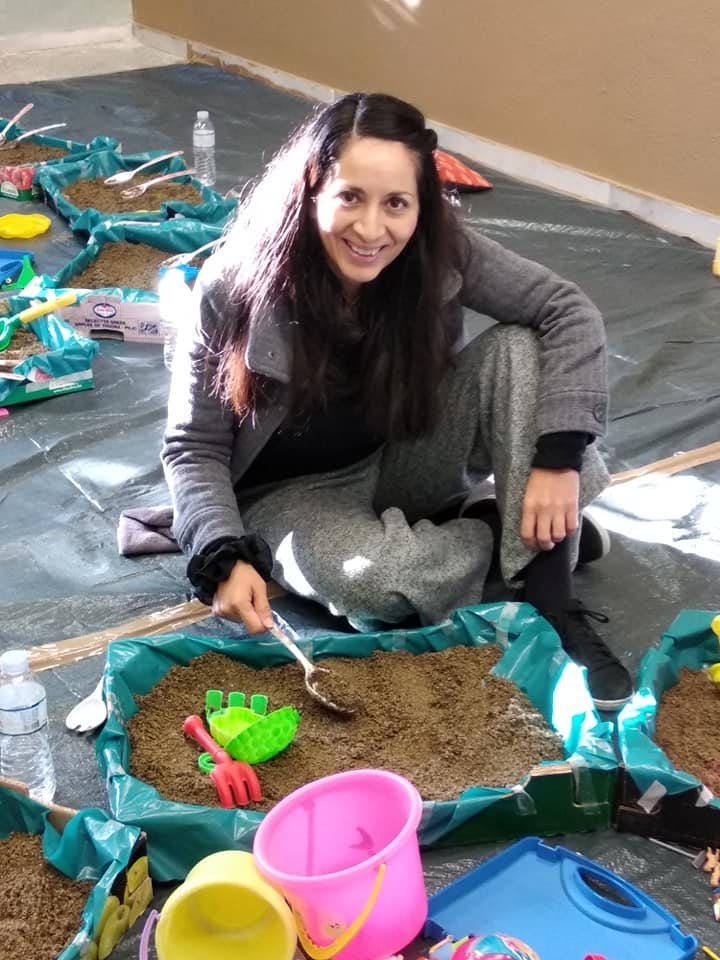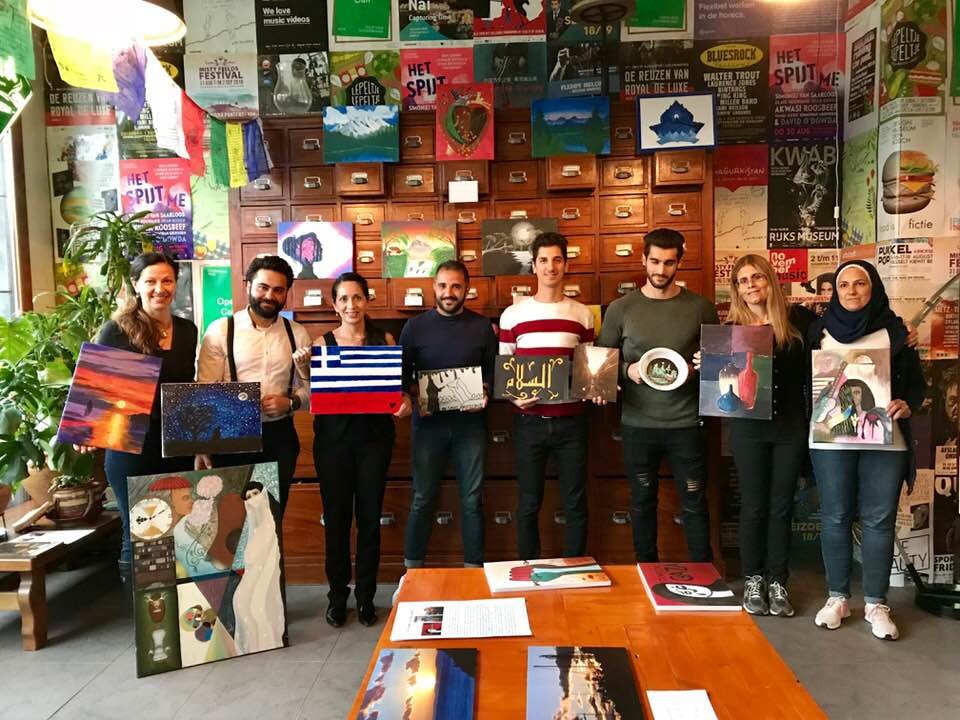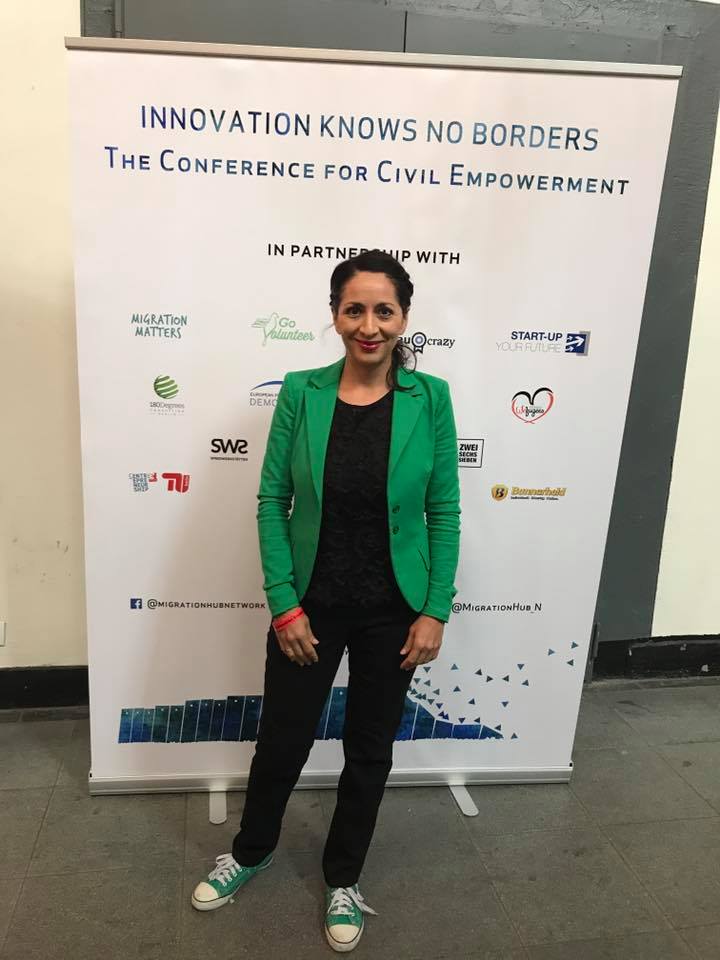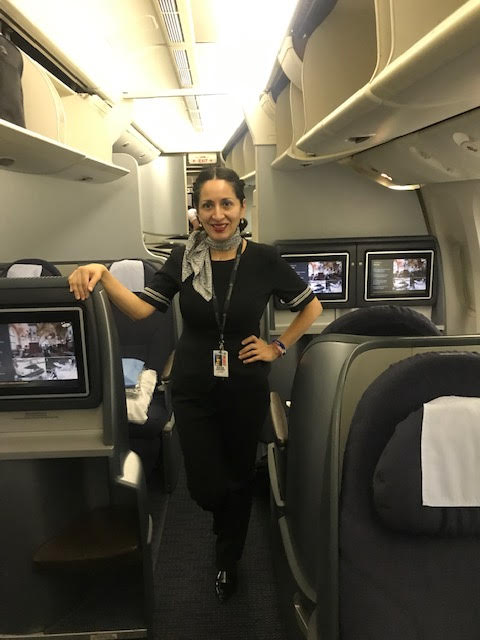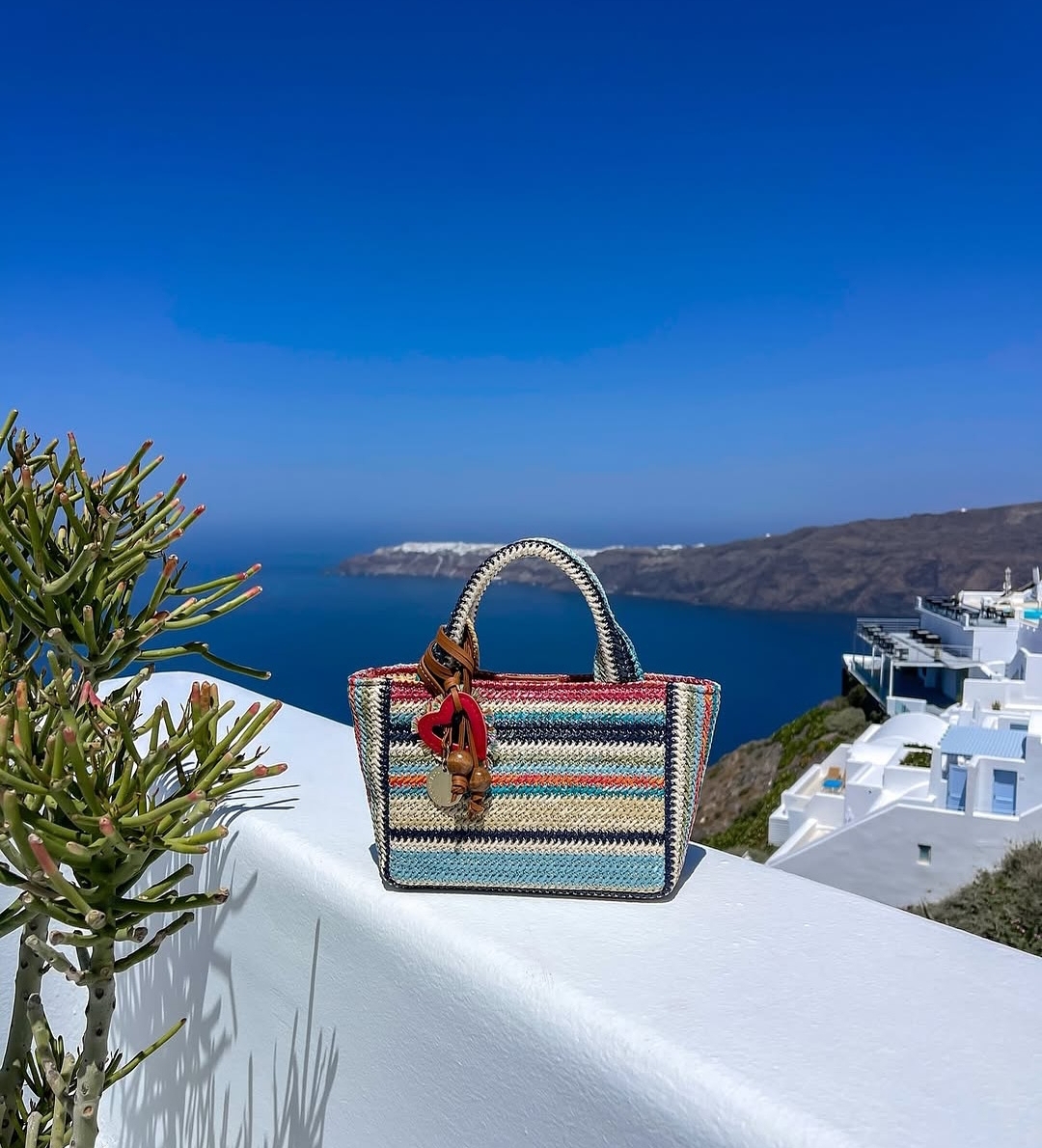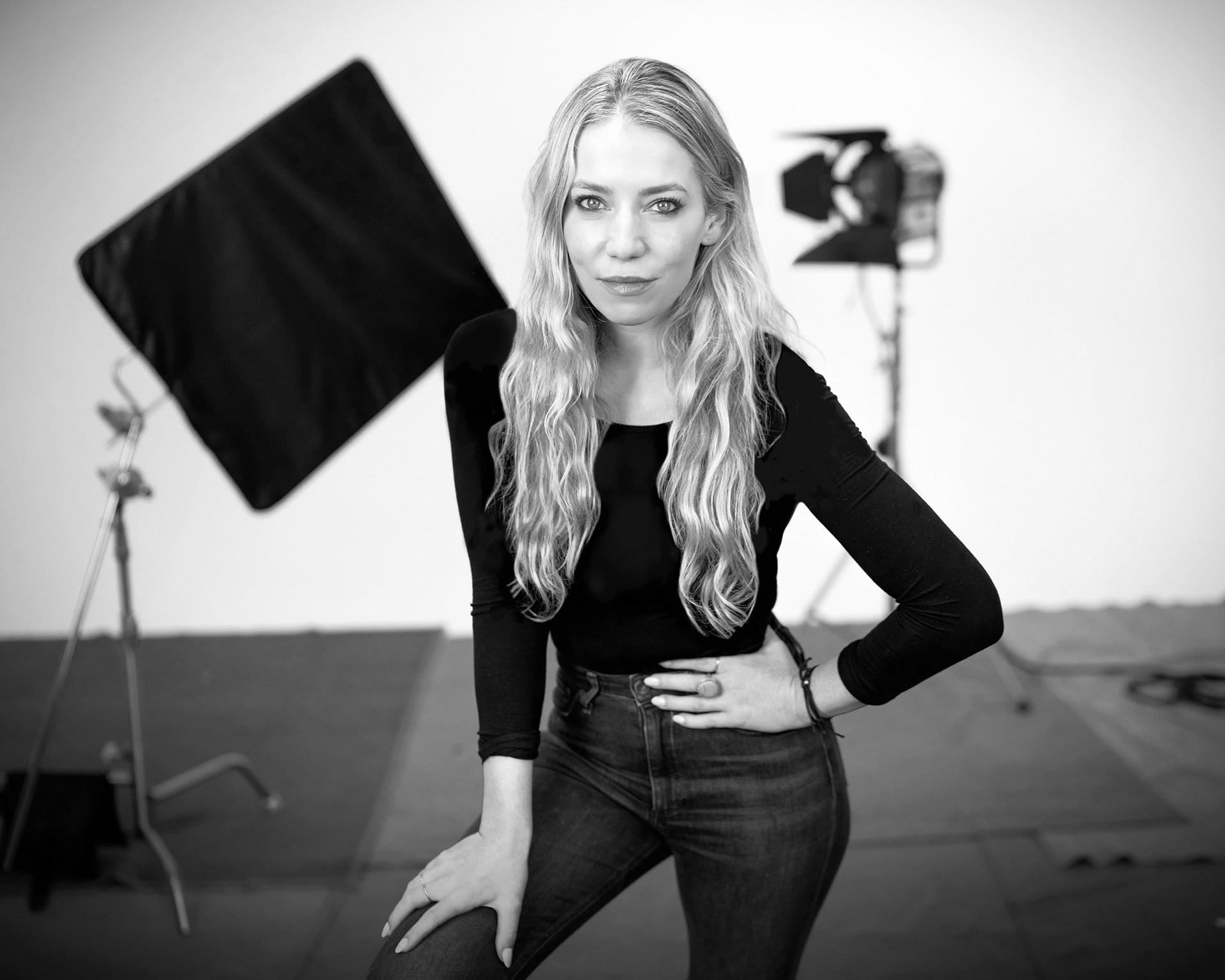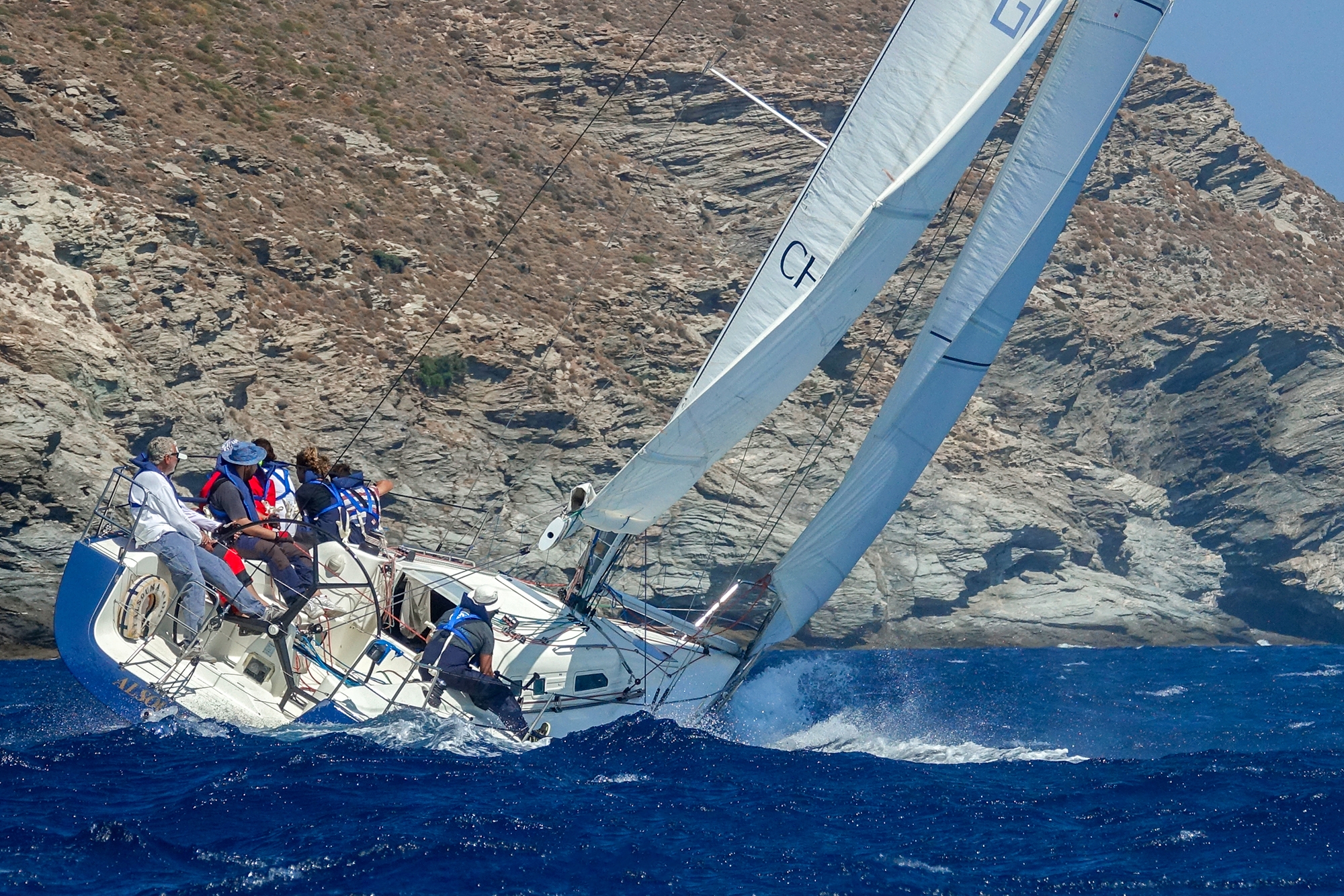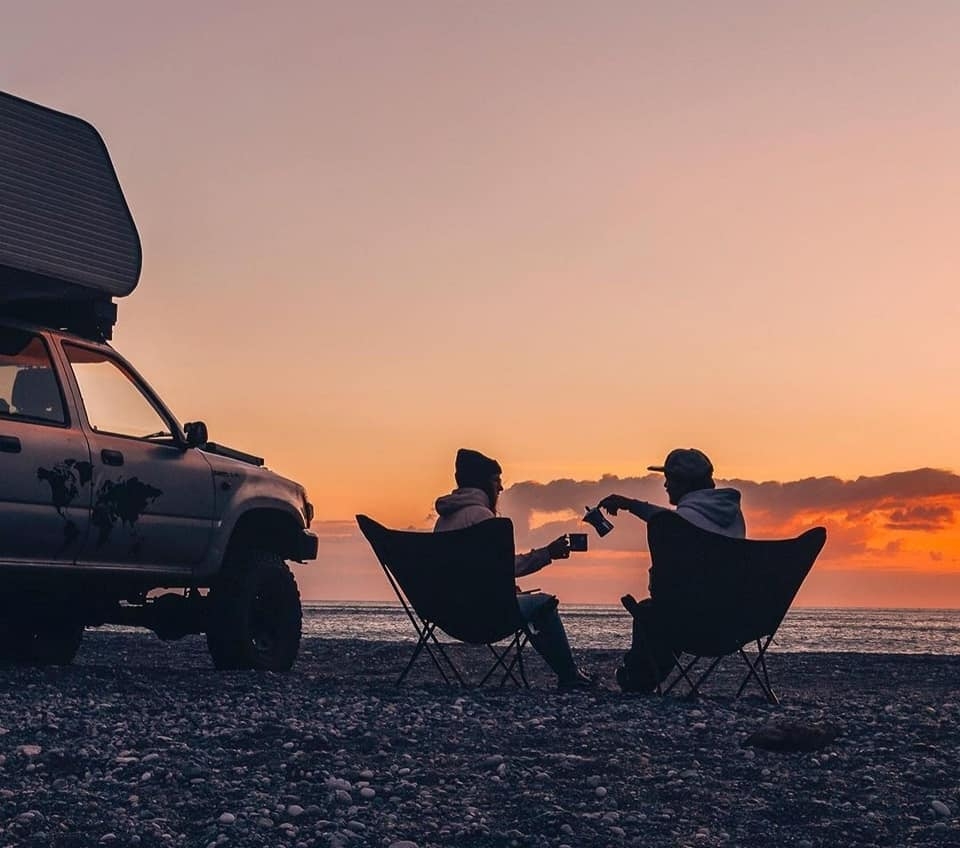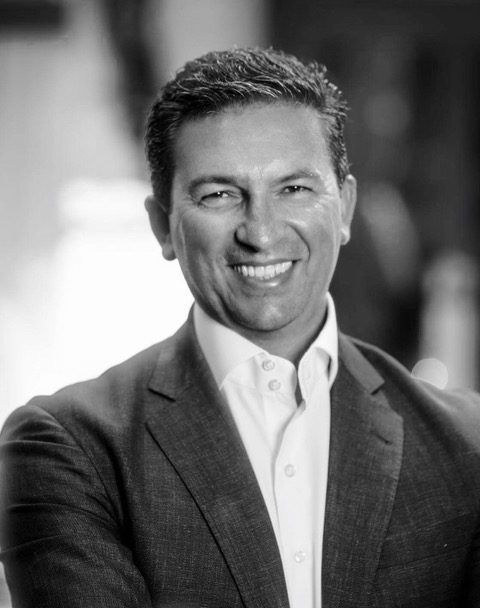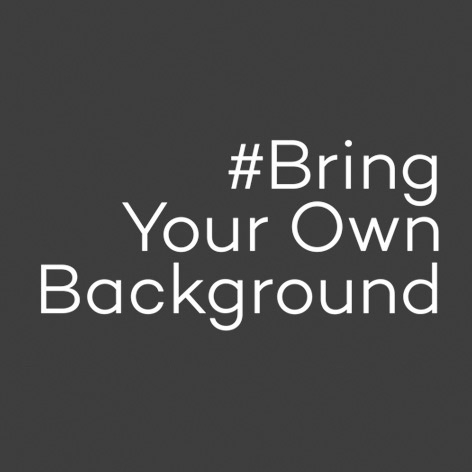1.First I would like to say that I feel great joy and honor to talk to you. What was the motivation behind your decision to deal with the issue of immigration?
-In the beginning, about three years ago in September of 2015, I was helping to volunteer in Germany, Austria, Hungary, and all over in Europe. I realized that the situation wasn't very prevalent in the media in the US. As I'm from the US, I decided to start to create more awareness campaigns, and also to look more into how I could help and to be of assistance by creating awareness. I started initially because I saw the need to help the people fleeing- no other reason.
2. How difficult is to persuade people to be part of Love Without Borders For Refugees In Need?
-I started my group shortly thereafter in 2015, starting out with friends and families members. Now, we’re a group of over 6000 people in our Facebook group “Love Without Borders - For Refugees In Need” and it's a wonderful group. It's international from all different nationalities and religions. We try to help one another and it's wonderful to have that community where everybody can somehow play a part or a role in helping.
3.What is thinking out of the box for you?
-Thinking outside of the box for me is finding ways to make my work very efficient and to cut out any overhead cost to keep all of the funding that is brought to my organization to be used to directly help the refugees, and to make their lives a little bit more manageable under these conditions.
Ways to give them choices, find out what they did back in their countries and highlight those assets.
4.Are you the type of character who would swim against the stream or would you rather be on the safe side?
-I am definitely the type of person that likes to get things done and to you use my time efficiently. Normally working on our own, even though Love Without Borders is a very small organization with less than five volunteers, we’re able to help thousands of people. We really focus on positive people, positive surroundings and even the positive stories. Even though it's a very difficult situation we like to really show the positive stories from from the people that are displaced in Greece and and try to highlight those personal stories.
5.What have been your learning milestones starting this project?
-The one thing that I've learned the most in the past few years is simply to listen. When I was working in the Nea Kavala camp in northern Greece, I spent eight hours a day going from tent to tent and just sitting down with the families and listening to them. That proved to be more helpful to them than anything that I've done.
6.Do you agree that people in Greece are currently aware of refugees and their problems?
-Yes absolutely. The Greeks that I speak with and that I work with are very aware of the situation, however, I feel that many don't really understand quite well who the refugees are. I think they have an idea, but I think the problem and the missing link is that they need to sit down with one another and understand each other better. I think that would help the situation a lot. I think there's a fear of the unknown, but I think that they might be very pleasantly surprised to sit down with the refugees and realize that they're just the same. They want the same things in life for their families, for their children and for themselves. They want to have safe life, education, family and a safe place to call home. They want to work hard and be at peace.
7. How could we all help and alleviate the pain of people in the camps?
-As I just spent time in Samos island for instance, I saw that there are hundreds and hundreds of people living in flimsy tents. I feel like in Europe 2019 this is unacceptable. There are so many options to help these people and I don't feel like it's being dealt with efficiently. There needs to be more accommodation, housing, schools, projects and community sharing.
8. Can art have a healing effect to our lives after all?
-My project focuses on art and helping people work out their trauma so I can say firsthand that art has healed, art has helped support and art has really changed the lives of thousands of people in Greece. So my project is a firsthand way of showing that art is a great tool to help people create independence for themselves, give them empowerment and also to heal of all of the trauma that they’ve been through.
9. What was the obstacles that came in your way? Stereotypes? Prejudices?
-The obstacles that I faced initially were when I was working with other large NGOs because none of my ideas were being allowed or implemented. So i just decided to start my own organization and I registered my organization in the US. However, all my work is done to benefit Greece. Everything that I do is focused on helping the refugees heal and create a life for themselves. All of the materials that I purchase are purchased in Greece to help the local economy. I'm really focused on helping both communities work together to get through this and now that I have my own organization we still have some obstacles, but they're not as many because we have the freedom to create and implement our ideas along with the refugees.
10. Your next goals about Love Without Borders For Refugees In Need?
-We are continuing in 2019 to organize art exhibitions around the world. We have dozens of exhibitions lined up. I will be will traveling throughout 2019 in Canada, all over Europe and in the U.S. to highlight the refugee crisis that is continuing to no avail. We will continue to help the families on the ground in Greece that are not getting the assistance that they need and deserve. We will continue to hold workshops all over Greece to help the refugees to work out their trauma and to create the independence that's lacking in their lives.
Love without Borders is very interested in collaborating with any Greek organizations or communities to connect to the refugees and the local groups so that we can have a better understanding and better friendship for the future.

